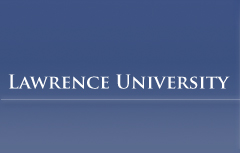Document Type
Press Release
Publication Date
10-7-2004
Abstract
Political scientist Christian Grose examines the reasons why elected representatives can support positions contrary to the voters of their district and still get re-elected in a Lawrence University Science Hall Colloquium.
Grose, assistant professor of government at Lawrence, presents “Why do Legislators Deviate from their Constituents’ Preferences” Wednesday, Oct. 13 at 4:30 p.m. in Science Hall Room 102.
Grose will discuss recent research he has conducted on elected officials’ “valence advantage,” that is, those advantages a representative has that are unrelated specifically to policy decisions, such as personal charisma, constituency service or the delivery of federal largess to district constituents. His findings indicate that the amount of money or “pork” that an elected representative is able deliver to his/her state or district is directly related to the extent to which that representative can take positions that are contrary to the views of his or her constituents.
A specialist in congressional representation and behavior, elections and public opinion, Grose joined the Lawrence faculty in 2002. The recipient of the American Political Science Association’s 2004 Carl Albert Award for the nation’s best doctoral dissertation in the area of legislative studies, Grose earned a bachelor’s degree in political science and history at Duke University and his Ph.D. in political science at the University of Rochester.
Department
Government
Recommended Citation
Lawrence University, "Defying Constituents Wishes: Lawrence University Political Scientist Discusses Why Elected Officials Can Do It" (2004). Press Releases. 342.
https://lux.lawrence.edu/pressreleases/342
